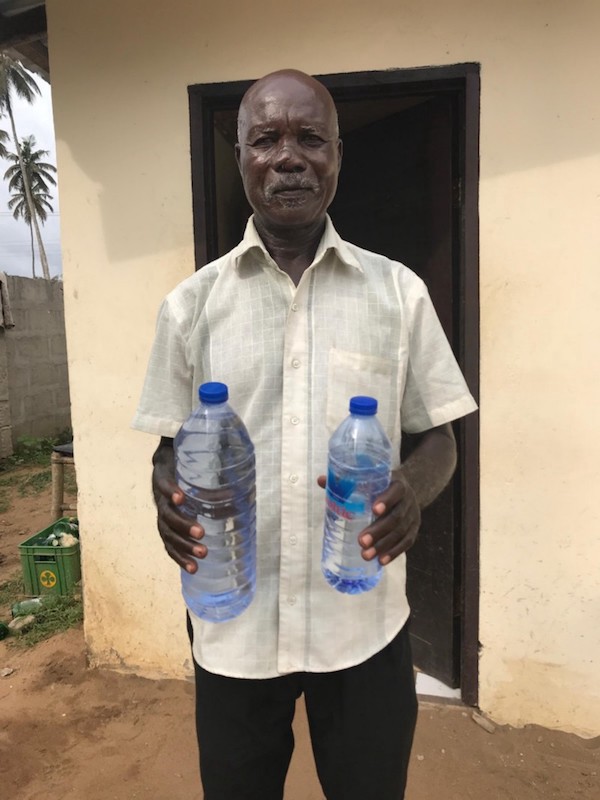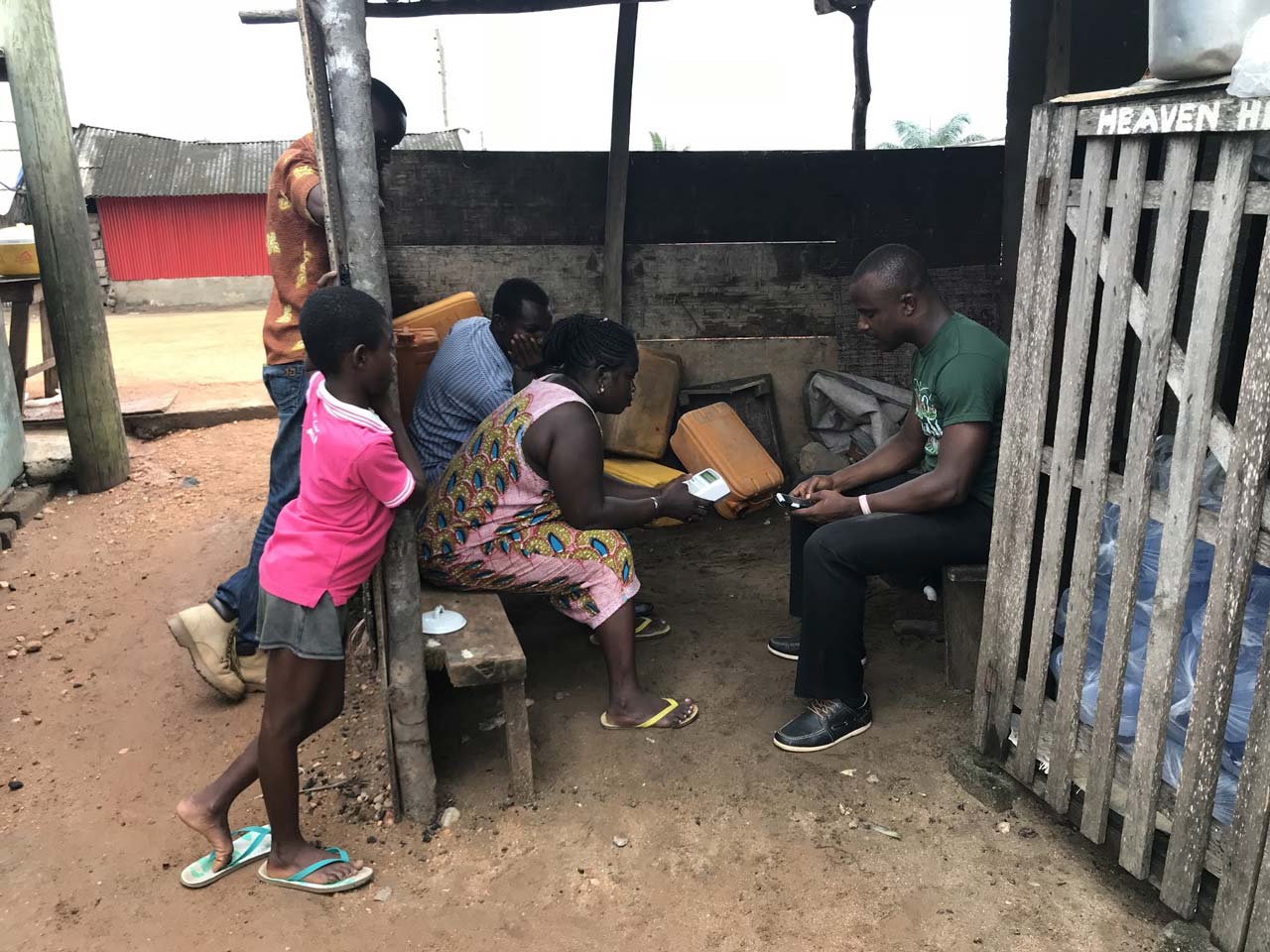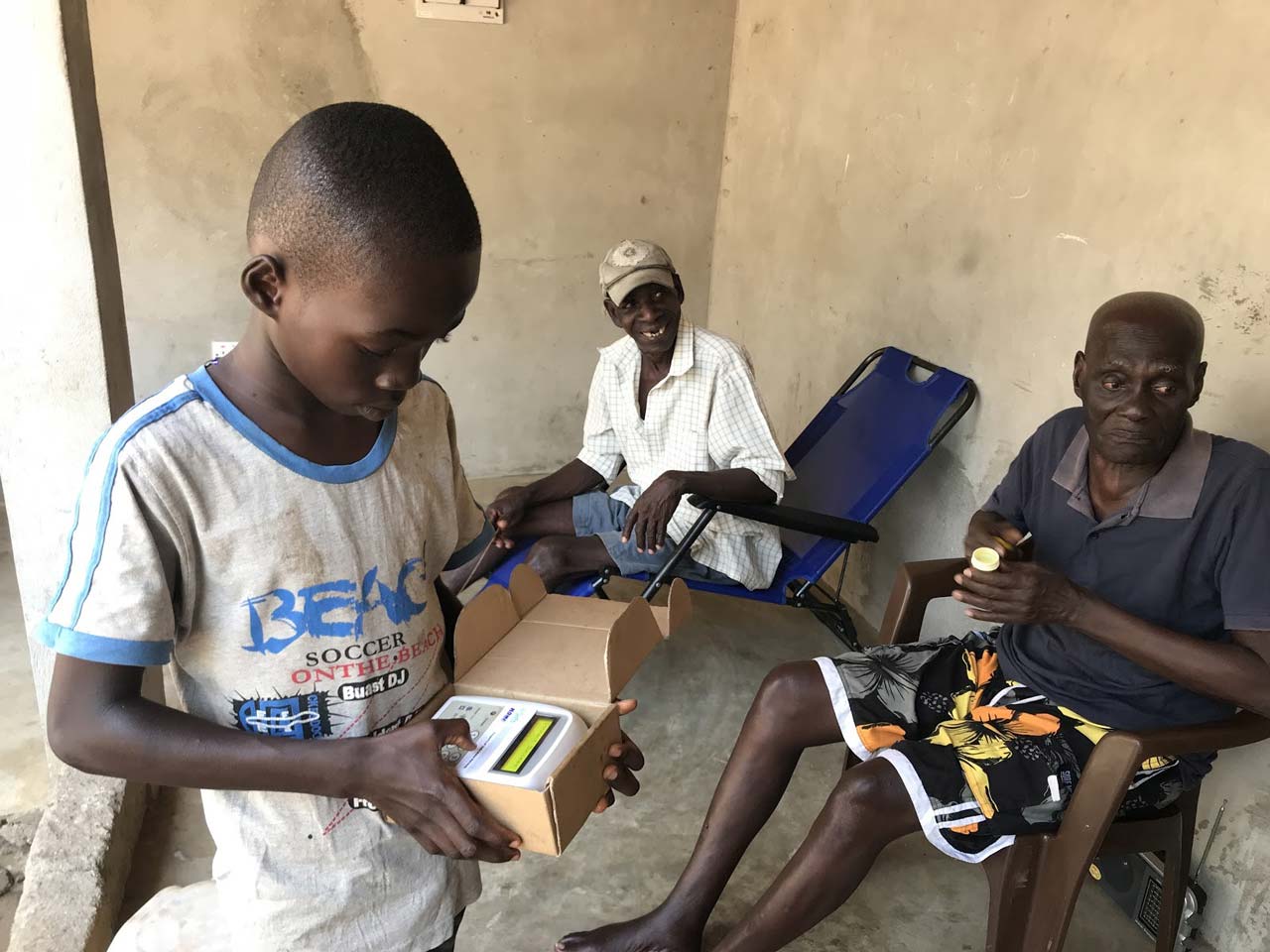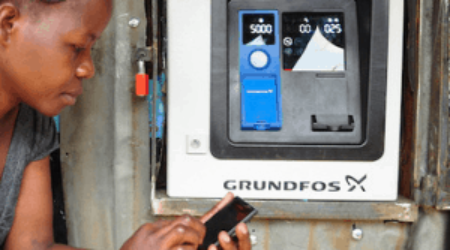Can PAYGo Unlock Access to Clean Water?
A Prepayment Model to Achieve the Sustainable Development Goal of Providing Water as Household-Level Service

You’ve probably heard about how PAYGo is revolutionizing the solar energy sector. But what can PAYGo do for water?
FIBR is partnering with Safe Water Network in Ghana to explore just that. Safe Water Network is a nonprofit operating sustainable water micro-utilities that serve one million customers globally. The company provides access to reliable, affordable, and sustainable safe water to communities in need through off-grid community water systems. In Ghana, Safe Water Network serves over 300,000 customers with 95 stations (kiosks) and 590 household connections. The stations are operated as local water businesses that provide consumers with a trustworthy source of water.
Water at the Household Level
So, why do countries like Ghana need a micro-utility like Safe Water Network? While access to clean water is a universal right, it is often complex and highly politicized. Promisingly, the Sustainable Development Goal for water (SDG6) sets forth that water should be provided as an ongoing service for everybody at a household level. This represents a huge shift from much of the water access work going on to date, which largely comprises one-off water access projects in communities that don’t stay around to ensure maintenance and deal with other issues that can and do arise. However, the need for household-level connections is enormous: over three billion people still lack access to clean water on-site or in their homes.
Throughout Africa, utility companies have struggled to collect post-paid fees from clients with household connections and have found themselves with significant arrears. In fact, a 2008 survey found that a majority of African utilities were only able to collect fees from less than half of their clients.

Making Water Affordable
From the consumer’s point of view, the upfront cost of water connections are prohibitive. Installing on-site piped water connections can easily cost upwards of $100, a significant barrier to adoption for low-income households. Could a PAYGo approach ease the challenges faced both by water utility companies like Safe Water Network and low-income customers?

PAYGo as payment model began in earnest in the solar sector in East Africa around 2011. With PAYGo financing, the customer needs to have a positive loan balance in order to access the service, making it similar to prepaid electricity. For example, a user acquires a solar home system for $35 down and agrees to purchase 365 energy days at $0.50 per day. If that user sends the PAYGo solar company $10 on the 1st of the month, she can use her solar home system for 20 days without interruption (battery and sun permitting) until the 21st, when her balance will zero out and her machine will automatically turn off. Once she sends in another payment, the unit will reactivate. It goes this way until she has purchased 365 energy days, or paid $182.50.
Digital payments linked to prepaid smart water meters would allow small water enterprises to cover much larger areas and serve more people with the same resources. PAYGo financing with loan repayment linked to water consumption could then help to make in-home connections affordable. However, PAYGo water financing remains largely untested.
Towards a PAYGo Water Model
So together with Safe Water Network, we are working to see how lessons from the PAYGo solar sector can help make a clean water connection affordable to more Ghanians and make the business sustainable for Safe Water Network. In addition to supporting Safe Water Network customers who recently moved from post-paid to pre-paid PAYGo accounts, we are also digitizing operations and providing access to seamless digital payment processes, which will enable them to better track customers’ payments and demographic data to better track demographic, transition, and consumption data.
Ultimately, Safe Water Network is committed to making water provision as financially and operationally sustainable as possible and recognize that a path to sustainability may be possible through digitizing payment mechanisms and enabling customers to create a digital footprint of their financial history, paving the way for access to digital financial services. We’re excited to share more on their journey to adopt a PAYGo model in future and portions of this post are excerpted and condensed from an upcoming briefing note on PAYGo Water by Daniel Waldron. Stay tuned!



